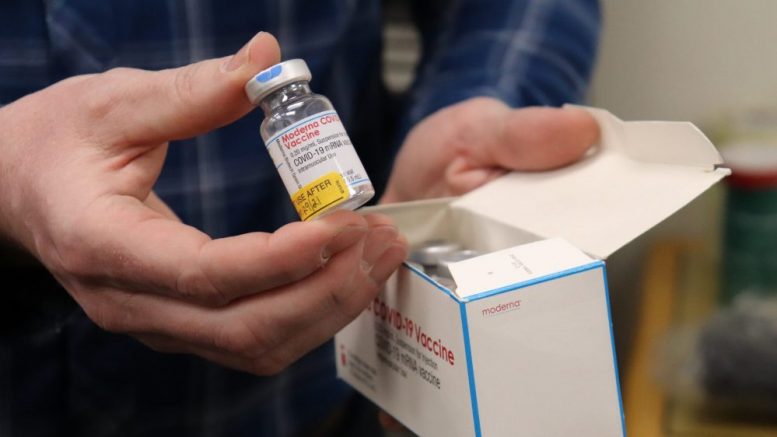The territorial government announced it would be implementing vaccine requirements for non-essential businesses, but on a voluntary basis.
In a press conference Thursday afternoon, Premier Caroline Cochrane explained the policy.
“Non-essential businesses will be given the option to either keep the current restricted capacity limits or be permitted to have a higher capacity if they admit only vaccinated residents into their establishments,” she said.
Dr. Kami Kandola, chief public health officer, clarified the restrictions: the territory will be moving back to phase 2 of re-opening, meaning non-essential businesses, such as restaurants and gyms, can allow up to 25 people indoors and 50 outdoors if they do not implement the vaccine requirement. Whereas businesses that do have a vaccine requirement can open at full capacity.
These gathering orders were in place last year, but several businesses were able to apply for exemptions that were approved on the basis they enforced masking, sanitization and symptom checks for customers. This year, businesses can gain that same exemption, but by implementing a proof of vaccine requirement.
The new virtual proof of vaccine credential and the hard copy immunization record will both be accepted.
Dr. Kandola added other high risk events will need additional approval to go forward, this includes funerals, indoor sports, as well as dancing.
The rules will not require employees to be vaccinated, Dr. Kandola says, adding that’s a human resources policy.
No details were given for how this would be enforced, Premier Cochrane said the GNWT doesn’t have the ability to ensure every business follows these new rules.
“The reality is just we don’t have enough officers to stand at every business, so that won’t be an option for us,” she said, adding that 811 would still be looking into complaints that are reported.
The NWT is one of the only jurisdictions to implement this policy as voluntary, every province has made proof of vaccination mandatory for non-essential businesses.
The new rules are expected to be put in place on Oct. 22, as health officials said they believe Yellowknife, Dettah, Ndilǫ and Behchokǫ̀ passed the peak of the current outbreak last Thursday when active cases hit 460 in the NWT. But Premier Cochrane said this could be delayed if the numbers don’t drop as expected.
This means the current restrictions of no more than 10 people allowed inside a business at one time and banned household gatherings will be in place until at least Oct. 22.
A return to the classroom and the Inuvik outbreak
Schools are tentatively scheduled to return Oct. 25 as long as the cases continue trending down.
The YK District 1 school board was the first large local employer to require all employees to be vaccinated. The board of trustees voted on this Tuesday and will be requiring staff be fully vaccinated by Nov. 30.
The GNWT is not enforcing vaccination in its own workforce, something other jurisdictions have implemented. At this point the GNWT is only requiring staff who work with vulnerable populations to be vaccinated as of Nov. 30.
Both the GNWT and the YK District 1 have exemptions on a case-by-case basis.
The outbreak in the Inuvik homeless population was also discussed at the press conference. Both shelters in the community have been closed as a result of the outbreak.
The GNWT previously said there would be another space set up in the community for those experiencing homelessness, but in the press conference officials didn’t say anything had been established.
In the press conference, Dr. Kandola said that the Mackenzie Hotel is being used as an isolation centre for those exposed to the virus.
There are currently six active cases in Inuvik.
There are 205 active cases in Dettah, Ndilǫ and Yellowknife, 133 active cases in Behchokǫ̀, 13 cases in Hay River, six in Fort Smith, six in Fort Simpson, three in Whatì, two in Fort Good Hope, one in Łutsel Kʼe and one in Norman Wells.





